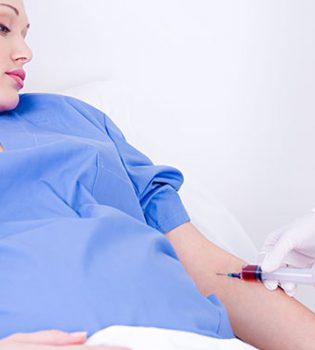After getting pregnant, you should definitely go to the doctor’s check-ups regularly. These controls are the most important factor in the early detection of the risks that you and your baby take during pregnancy and in the management of these risks by your doctor.
How often should you go to check-up?
It is appropriate to do the first control when your menstrual delay reaches about 1 week, in this period, the gestational sac and the cell cluster in the sac, known as the fetal pole, in which the embryo will develop, should be seen in vaginal ultrasoundgraphy. Otherwise, if your pregnancy test is positive and the sac is not seen, either late fertilization has occurred and the sac will be seen a few days later, or there may be a chemical pregnancy or ectopic pregnancy, these options should be investigated. One week after the sac is seen, cardiac activity should be seen in the embryo. Approximately 15% of pregnancies are lost in the first 9 weeks due to major organ errors and chromosomal anomalies, so it is appropriate to make the next control around the 9th week. Your next controls will coincide with the first and second trimester screening tests (double and quadruple tests).

Between 20-22 weeks are suitable weeks for second level ultrasonography. In this examination, especially the fetal heart will be evaluated, anomaly scan will be performed, and blood flow in the vessels feeding the uterus will be measured. This examination can give preliminary information about pregnancy-related high blood pressure and growth retardation in the baby in the later stages of pregnancy.
After screening tests and 2nd level ultrasonography are completed, if you do not have a special internal problem with pregnancy (hypertension, diabetes, etc.) and you are not pregnant with multiples, check-ups are required once a month until the 30th week, every 2 weeks between 30-36 weeks, and once a week between 36-40 weeks.







